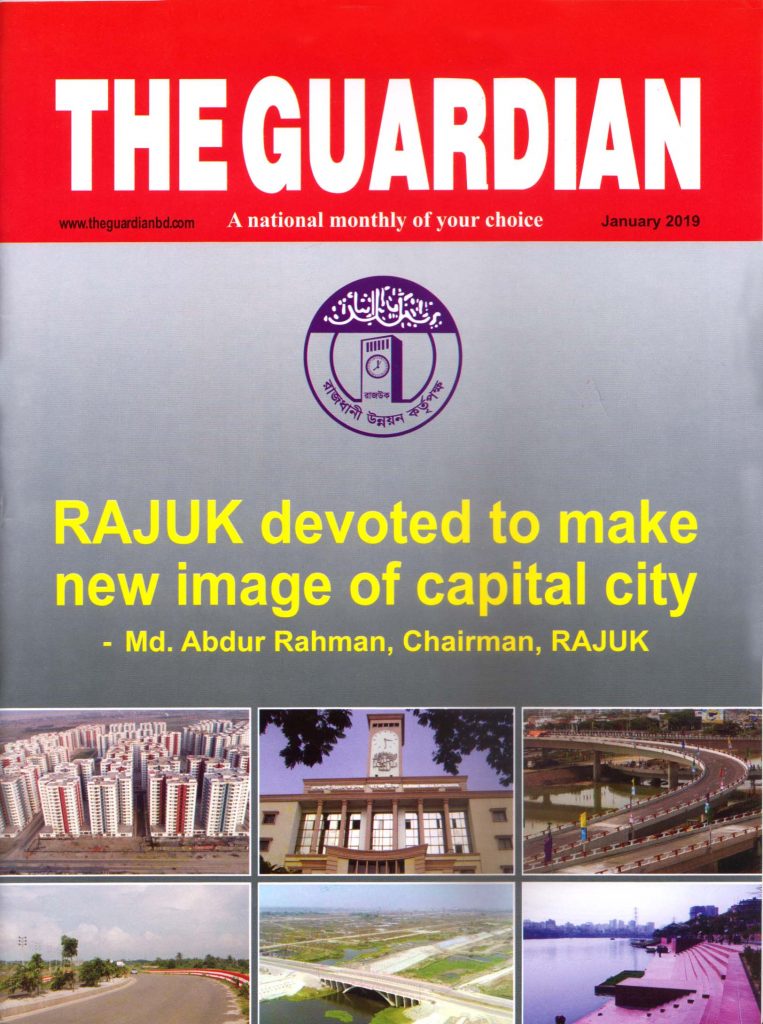In the book “Green Pastures”, the author states that “Everything nailed down is coming loose”. In line with that the absence of Good Governance looses nails in accountability and transparency system. Good governance is regarded as vital for effective use of resource management of public (internal and external) and private funds, henceforth, the focus of interest is increasingly being placed on auditing the application of funds as well as assessing the impacts achieved by their application.
In this field, Foreign Aided Projects Audit Directorate (FAPAD) delivers confidence and comfort through the assurance process. Development Partners and funding agencies require a high level of assurance that their funds have been used for the agreed purposes in the manner that was intended. Foreign Aided Projects Audit Directorate (FAPAD) audits a significant number of donor funded Projects/Program.
History and Evolution of FAPAD
The Foreign Aided Projects Audit Directorate (FAPAD) is one of the dedicated audit directorates among the ten different audit directorates under the Office of the Comptroller & Auditor General (OCAG), the Supreme Audit Institution (SAI) of Bangladesh. This specialized arm of OCAG Bangladesh is entrusted to auditing the activities of all development and technical assistance projects and programs in the public sector funded by foreign aid. As a result of its only one of kind task of development project auditing, FAPAD provides independent assurance to Parliament as well as to Development Partners on the proper accounting for and use of project resources.
Genesis
The present status and functions of FAPAD have been originated from a continuous pathway of auditing foreign aided projects since early eighties. The decade of 1970s to 80s, foreign aid sought to stabilize the economy of the country to bear the after effects of the war of independence. The increasing flow of foreign aid and the inevitability of ensuring proper accounting for and use of this aid instigated the thought of establishing an office for this purpose to the government.
Moreover, satisfying the requirement laid down in the credit agreements of the government, top level supervision of foreign aided projects was required to be strengthened. Since1981 there was no separate office for conducting audit of foreign aided projects. Besides this, major development partners like the World Bank and ADB concentrated on auditing of the development projects funded by them as well as other organizations.
As a specific move World Bank in their letter to Ministry of Finance & Planning, dated 9-6-1981, outlined the necessity of establishment of an office for auditing of foreign aided projects. Then Comptroller & Auditor General Osman Ghani Khan on 15-12-1981 sent a proposal of opening a new office for accounting of foreign aid and for auditing of the foreign aided projects to Finance Division, Ministry of Finance & Planning according to the mandate of CAG.
Finance Division in consultation with ERD & World Bank conferred their final sanction of setting on 21-11-1982. Finally, the activities of FAPAD commenced in March, 1983 with a set up of ninety nine posts including ten (10) audit teams as per the recommendations of the Enam Committee of Chief Martial Law Administrator. During its inception the office was known as Directorate of Audit, Foreign Aided Projects and first organizational set up was led by Director as head of the directorate followed by Additional Director as the second person. The other positions were Deputy Director, Audit & Accounts Officer, Superintendent, Auditor, Junior Auditor, and so on.
Mir Belayet Hossain of 1963 batch of Audit & Accounts Cadre worked as the first Director for the interim period of the newly organized office since 06-02-1983 to 07-08-1983. Atiar Rahman took the responsibility of the office as fulltime Director from 6th February 1983.
The prime function of this office was to conduct local audit of all foreign aided projects in Bangladesh as well as audit of all loans, grants and aids received from various aid agencies and other friendly countries. In addition to this, this directorate was also involved in providing financial advice to the foreign aided projects by prescribing the forms and manner of maintaining project accounts. The then audit purview was the budget estimate of the financial year 1981-1982 with total 479 foreign aided projects with an investment of Tk. 775 crore in the form of loans and grants since its commencement.
Business Process of FAPAD
From its inception in 1983 till date, FAPAD had been administered by 27 Directors General who are the members of BCS (Audit & Accounts) Cadre. The present management of FAPAD is led by Director General Zeenat Khan who is a member of BCS (Audit & Accounts) Cadre 1986 batch having the organogram as follows:
Functional Units and Their Activities
The functional units are namely sector, report and coordination section. These units and their activities are presented here in a nutshell.
Sector
FAPAD conducts audit by 6 major sectors (from 1-6) and prepares Audit Report for OCAG. The activities of these 6 sectors are almost similar. These activities are preparation of Audit plan, conducing of field Audit, reporting and follow-up after field Audit, sector-wise administrative activities and Audit observation settlement related activities (BSR, Bi-Partite and tri-Partite meetings, etc).
Report
After QAC (Quality Assurance Committee), further processing for preparing the Audit Report is done by Report sector. They also participate in the PAC (Public Accounts Committee) Meeting.
Coordination Section
The main function of this section is to communicate among the Audit Directorates, Audi tees, Donors and concerned Ministries/Divisions of the Government of Bangladesh.
Parties Related to FAPAD’S Audit
The major partners of FAPAD’s audit engagement are diverse of International Organizations like the UN agencies (UNDP, UNFPA, and UNICEF), FAO, JICA, the World Bank, IDA, WFP; Multilateral Financial Institutions such as ADB, IDB, EU, IFAD, AFD; and Bilateral ODAs like KOIKA, LOC, Russia, GIZ, JICS, CHINA, DFID, USAID, etc.
Apart from other audit directorates of the OCAG, FAPAD carries out financial audit of projects and programs funded by these development partners as their regular audit practice. Audit service provided by FAPAD is integrated and designed to meet the explicit and implied requirements of the Development Partners. Fiduciary requirements of the Development Partners and the Government of Bangladesh set the audit direction.
FAPAD Auditing Standards and Guidelines
FAPAD’s audit is usually guided by Project Audit Manual approved by Comptroller & Auditor General of Bangladesh in the year 2007. Before that its audit procedures were guided by Financial Audit Procedures Manual approved by CAG in the year 1996.
It is also mentioned that “Government Auditing Standards” and “Audit Code” of CAG, Bangladesh are also applicable.
From 2013, FAPAD is also committed to implement “International Auditing Standards of Supreme Audit Institution (ISSAI)” under the direction of OCAG “Strategic Plan 2013-2018”.
FAPAD Audit Procedure
Audit works of FAPAD are generally divided into following parts, like-
Planning
Every current financial year FAPAD is actually doing the audit of last financial year’s receipts and expenditure of Foreign Aided Projects which is eventually called post audit.
FAPAD’s “Annual Post Audit Plan” was developed by considering strategic direction from OCAG, requirements of Development Partners, Executives and other Stakeholder requirements and Revised Annual Development Plan (ADP).
Planning phase has three steps. These are –
1. To know the Entity/Projects/Program.
2. Strategic Decision.
3. Detailed Individual Audit Plan.
To know the Entity/Projects/ Program
In this phase FAPAD audit team basically gathered good understanding on financial, business, control, management attitude etc. of the Entity by collecting different kinds of information from different sources.
At this stage two outputs are produced. One is “Permanent File” which contains permanent nature of information and another is “Detailed Risk Assessment” of the Entity. That is delineated in the form of preliminary report.
Detailed Risk Assessment i.e., Entity Risk (ER) = Inherent Risk (IR) Control Risk (CR) is measured by assessment of internal control. The word “CRIME” is actually explained the Control Status of the Entity. “CRIME” means:
C = Control Activities of the Entity.
R = Risk Assessment by Management.
I = Information Availability in the Organizational Level.
M = Management attitude.
E = Overall Environment of the Entity.
The Assessment of the above areas helps to measure control risk of the entity. This “CRIME” model is also known as COSO model.
Usually FAPAD assesses those areas of internal control by questioner method. So, Assessment of internal control and knowledge regarding different areas of the project enable audit team to have a better understanding about the assignment/entity before audit.
Strategic Decision
In this step, FAPAD actually makes decision on detection risk on the basis of assessment result of entity risk which is known at “to know the entity steps”.
In this step, audit teams make auditing decision by considering auditability and different impacts (Political, Social and Economical) and also to reduce Audit Risk (Audit Risk = Entity Risk X Detection Risk), and audit team also decides materiality (on the basis of Risk Assessment), material limit and sample size, sampling methods. As well as decision is made on resources (time and human resources) requirements.
Detailed Individual Audit Plan
In this step, Entity/Project/Program wide detailed Individual Audit Plan is made consisting of motivation of audit, audit objectives, audit scope, audit methodology, Risk Assessment of Sampling, Audit Design Metrix (ADM) and Audit Program.
This detailed audit plan actually guides the field audit.
Summary status of Audit Plan of Financial Year 2018-2019 are shown in following table:
Execution (Field Audit)
Basically field audit means collection of audit evidence. Evidence is actually proof of “What it is” which describes the real scenario. On the contrary, criteria mean “What should be” which describes the desired conditions. After collection of audit evidence, auditor compares it with criteria. If there occurs any difference, the auditor raises a query to the management for seeking their response.
Reporting
FAPAD needs to follow some deadline of Development Partners for issuing Audit Inspection Report (AIR). The different deadlines of Development Partners are given below the table:
AIR is usually finalized by following steps, like-
1. Seen and Discuses of Query with audited Entity.
2. Then after primary quality control those queries are placed before Director General for his kind approval.
3. Then draft AIR is issued.
4. After that in “Exit Meeting” discussion is made on draft Audit Inspection Report (AIR) with audited entity in presents of development partners.
5. On the basis of Exit Meeting discussion the draft AIR is finalized and after again approval of DG it is issued to the stakeholders.
6. It is mentioned that FAPAD AIR is divided into two parts- Audit Reports and Management Letter. In Auditor’s Report audit opinion is made on Financial Statements. And on the other hand audit comments with audit observations are made on different areas of the projects with recommendations. In management letter audit observations are classified into two parts- Part-A and Part-B. Part-A includes Serious Financial Irregularities (SFI) and Part-B includes General Observations.
7. If the audited entities are not able to compliant with the audit recommendations within defined time frame already mentioned by OCAG, then respected SFI’s are placed before OCAG in the form of Draft Audit Report.
8. Then the Draft Audit Report is approved by Auditor General after details quality assured by Central Quality Assurance Team (CQAT) headed by DCAG (Senior).
Follow-up
Here, follow-up means compliance of audit recommendation in order to settle down audit observations. The communications may be done between Audit Directorate and Audited Entity through Broad Sheet Reply (BSR), Bipartite and Tri-partite meeting.
Quality Control Procedure
FAPAD has a dedicated Internal Audit Cell under coordination sector directly supervised by Director and Director General.
This cell is responsible for presenting the reports and returns regarding activities of the FAPAD.
w Deputy Director heads the quality control team is responsible for ensuring quality of AIR. In this case the team actually follows quality control checklist.
w Director heads the quality control team for ensuring the quality of draft para (matured SFI) in order to prepare draft audit report.
w And a new hotline number is recently launched in order to ensuring transparency in audit work. The new hotline number is +8801783949031.
Outcome of FAPAD Audit Report
Every year FAPAD contributes to address system weakness and scope for development. A snapshot of FAPAD’s Audit impact is given below:
Capacity Building Activities of FAPAD
Under capacity building, different initiatives like in-house training and offsite training are regularly organized by FAPAD. This year FAPAD has organized 5 number of in-house trainings on different topics like Procurement, Income tax & Value Added Tax (VAT), Website development, Risk Based Audit Planning and Grants & Appropriation Audit. On the other hand, 35 numbers of participants are participated in different offsite training programs organized by Financial Management Academy (FIMA), Institute of Public Finance (IPF), Central Procurement Technical Unit (CPTU), Performance Audit Directorate (PAD) and Asian Development Bank (ADB).
Social Activities of FAPAD
A program has been taken by FAPAD Family to stand beside the flood affected people in Haor area of Sunamganj district by distributing relief. With the help of local authority at presence of respective UNO, all members of FAPAD contribute to make this step successful.
Blanket Distribution
FAPAD peoples are also took initiatives to brought smile in the face on 15th February, 2018 of cold affected people of Dhaka city who lives in the pavement every night with distressed.

Top : Relief distribution to flood affected people in Haor area of Sunamganj.
Down: Blanket distribution to cold affected people in Dhaka city.
Annual Milhad
Religious Program is usually organized by FAPAD. Annual Milhad Mahfeel was held on 7th June, 2018 in FAPAD Premises. A prayer was made to the Allah for betterment of the country and also for all.
Sports Program
FAPAD also regularly organizes annual sports program. Table tennis, Chase, Badminton, Carom, International Bridge, Cards, 100 meter Race, Sports includes different games.
Green Environment
A step was taken to promote `green’ in FAPAD office environment. Two specific yards named ‘Bristy Bilash’ and ‘Roudro Bilash’ were established by FAPAD. Roudro Bilash is used at break time to have a cup of tea with green. On the other hand Bristy Bilash is used for mini conference and meeting room.
Celebration of Different National Days
FAPAD also celebrates different national days. National Mourning Day (on 15 August), Declaration of Bangladesh as a developing country (on 22 March, 2018) and Bangabandhu’s 7th March Speech by UNESCO (25 November, 2017) are also celebrated this year.
Conclusion
So far more than the cut and thrust of accountability and transparency, we must guard against the fraud, corruption and misuse of resources and the evasion of issues which the good governance must meet anyway in the long run. In this case audit is always a strong and trusted pillar to strengthen and ensure good governance.
It is always hard and never painless to adopt international best practices and procedures and ensure accountability and transparency process in audit work for the sake of giving better assurance by audit.
But in this perilous time where misuse, cost overrun, corruption and control override tendency in project management are still a burning issue, only proper assurance by systematic evaluation gives the comfort zone to the stakeholders. Audit recommendations help management to improve their systems and ensure better utilization of resources. So, it is wise: “Truth and trust is more valuable if it takes you a few years to find it.”















